Niger
The United States, which is betting on Niger in the anti-jihadist fight in the Sahel, has strongly condemned the overthrow of President Mohamed Bazoum but has so far refrained from speaking of a "coup d'etat", retaining a little leeway.
While France appears on the front line, ordering the suspension of its direct aid and the evacuation of its nationals, as well as other Europeans, the United States has, at this stage, decided neither.
And, above all, Washington considers that there is still a "small window" for diplomacy and the restoration of President Bazoum to his duties, welcoming in passing the message of firmness sent to the putschist soldiers by the countries of East Africa. 'West.
"We have no indication of direct threats to US citizens or our facilities" in Niger, National Security Council spokesman John Kirby said on Tuesday. "We have therefore not changed our posture regarding our presence in Niger for the moment", nor decided to suspend American aid, he said.
"If we have to adjust, we will adjust. But we are not there yet," added the official, stressing that the United States "monitored the situation almost hour by hour". However, the Pentagon announced on Tuesday that it had suspended "security cooperation" with the Nigerien army, mainly training and training activities.
France, a former colonial power in Niger, said it had started to evacuate its nationals and Europeans from the country, a first plane having taken off from Niamey on Tuesday evening bound for Paris.
Asked why the United States has not yet formally spoken of a "coup," State Department spokesman Matthew Miller reiterated on Tuesday that it "is not yet clear that this attempt (to seize power) will succeed in the end".
According to American law, such a qualification would oblige the United States to cease all economic or military cooperation, with exceptions related to the fight against terrorism. Beyond the legal and semantic labeling, it is a question for the United States of thus preserving a certain leeway if the blow ends up failing, agree on diplomats.
The United States is providing several hundred million dollars in aid, particularly humanitarian aid, to Niger and has some 1,000 soldiers deployed in the country as part of the fight against jihadist groups in the Sahel.
Washington has given its full support to the firmness displayed by the West African countries (ECOWAS) which on Sunday set a one-week ultimatum to the military junta in Niger for a "complete return to constitutional order ".
US Secretary of State Antony Blinken, who visited Niamey in March - the first visit by an American diplomat to this country - increased exchanges with partner countries in the region, as well as with France and President Bazoum himself.
In an interview with AFP in March, he highlighted Washington's support for Niamey through a program to reintegrate repentant jihadists, an irrigation improvement project, and agriculture resilient to climate change in this arid and poor country.
The Biden administration wants to engage more in Africa to counter growing influences there, particularly from Russia. The coup in Niger is thwarting these efforts.
Mr. Blinken made it clear that continued US aid to Niger would depend on developments on the ground and a return to democratic order, and Washington could suspend aid in due course without setting a date. of calendar.
“Of course, if we come to the conclusion that a coup has taken place, we will follow American law,” a senior State Department official said on condition of anonymity. "It's an attempt at a power grab. We don't think it's been fully successful and we think there's a small chance of reversing it," the official added.
He pointed out that the country's new strongman, General Abdourahamane Tiani, did not seem to have reached a full "consensus" within the army around him. For Washington, General Tiani acted out of personal interest, for fear of being removed from office.
"We do not have the feeling that he is very popular", he added, also ruling out a direct involvement of the Russian group of mercenaries Wagner even if he could seek to "take advantage" of the situation.



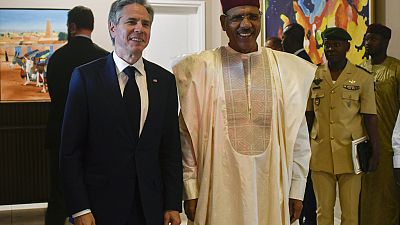

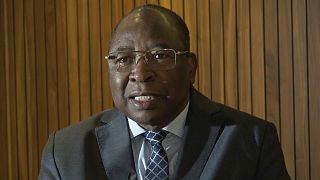
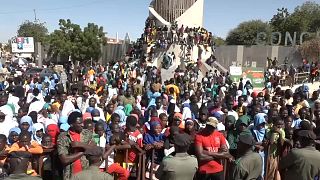
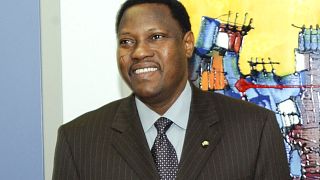
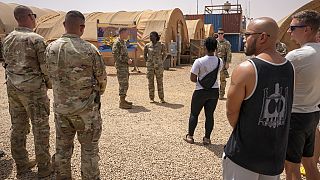



Go to video
Six arrested over break-in at Lumumba’s Mausoleum
01:42
Niger: Conference in solidarity with the Alliance of Sahel States
Go to video
Ghana overtakes Nigeria in U.S. visa overstay rates, new report reveals
01:00
Tunisia: French student detained for weeks, flies back home
01:10
COP29 data reveals most polluting cities
01:04
Putin congratulates Trump, signals openness to dialogue over U.S.-Russia relations